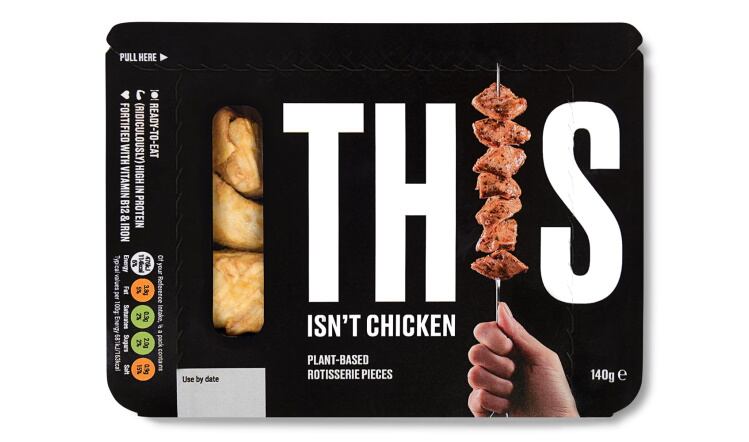The boss of Associated British Foods (ABF) has revealed that its food businesses had to produce 'more than ever before' during the weeks of panic-buying at the start of the coronavirus pandemic.
However, he revealed that the company does have the financial resources to meet the challenge of coronavirus, with £800m in cash.
ABF chief executive George Weston said the company’s food businesses, which he claimed produce more food in the UK than any other organisation – and, in particular, its food factories and depots and drivers – had 'equally been put under intense pressure' since the pandemic began.
Higher than normal absence
“They have had to do so while reconfiguring factory layouts to ensure safe working for our staff, while suffering inevitably from higher-than-normal absence and while often being isolated from outside sources of technical support,” he revealed in the company’s interim results announcement for the 24 weeks ended 29 February 2020.
“The willingness of thousands of our people to come to work, while so many of the rest of us sit this disease out safely at home, has been humbling; and the ingenuity, hard work and leadership of dozens and dozens of frontline managers has been amazing.”
The company revealed that it had had up to 23% absence levels for periods of time at some of its important sites.
However, Weston said ABF’s factories were full of people who knew how vital their work was. And he added that the success in keeping the nation fed was testament to the robustness of the modern food chain.
“It is also testament to the reality that you don’t need to tell most people how to behave well, you just need to allow them to do so; and it is the finest thing I have seen in a career in business,” he said.
Sales boost
Weston highlighted that the company had seen a sales boost for AB World Foods in the wake of the coronavirus.
He said the firm had seen 'heroic efforts' at its Leigh factory to produce significantly greater demand for the pastes and sauces made there, despite high absences, as Leigh is a 'hotspot' for COVID-19.
The company said its bakeries had been under 'significant pressure', with an increase in demand of around 20% due to COVID-19, and it had introduced a new range of home baking kits under the Allinson brand, which had seen significant sales increases.
“We’ve been absolutely full throughout the period and at no stage have we lost production because of the disease, [which reflects] a really good effort by a lot of people,” he said.
However, despite increasing production by over 350 tonnes of pre-packed flour a week, the company still could not meet the demand.
“We’re all locked down, baking away like mad, which is the first time we’ve done that for about 30 years,” he said.
Ryvita, Westmill Foods
With many of the public working from home, Ryvita had seen a 28% increase in demand as people looked for lunchtime options.
However, Weston also revealed that Westmill Foods, which supplies Indian and Chinese restaurants, many of which are shut, has been negatively impacted as has AB Sports Nutrition, which has had its sales 'devastated' by the cancellation of sports events and the closure of gyms.
Meanwhile, the company is now supplying all of its own food manufacturing sites in the UK, along with a couple of hospitals in East Anglia, with hand sanitisers from its Wissington factory.
ABF, which also owns clothing chain Primark, has utilised the fashion chain’s vehicles to give the company extra bread distribution capability. Weston also revealed that several dozen workers had been moved from Primark to the food business to help out.
COVID-19 has seen the firm’s enzyme factory working to capacity, with increased demand from both animal feed enzymes and bakery enzymes, he revealed.
Weston also highlighted that two of its employees – Mario Marioli, who worked for 40 years in its Italian yeast plant, and Claudio Maini, who worked at Acetum for 20 years – had lost their lives to COVID-19 in the past three weeks. He said the company also had another employee currently in intensive care in the US.
“One of our ABF head office colleagues lost her partner to the disease last week. Many of us have vulnerable relatives and friends we must protect, and I am sure we all know people working under huge stress in the NHS and in health and care services around the world,” he added.
Furlough
ABF revealed it had furloughed 68,000 of its people. From making sales of £650m each month, clothing retailer Primark had sold nothing since 22 March.
However, Weston said the company had paid for in full, and taken delivery of, very large amounts of completed stock and had established a fund that would ensure everyone in a vulnerable country who worked on a Primark garment, whether completed or not, was paid for that work.
The company revealed that revenue for the group, at £7.6bn, was 2% ahead of last year at actual exchange rates and 3% ahead at constant currency. Adjusted profit before tax of £636m was 1% ahead of last year at actual exchange rates.
Weston said: “The group delivered an encouraging trading performance in the first half. The rapid spread of COVID-19 has impacted all of our lives and the human tragedy that continues to unfold has shocked and saddened us all. We are a strong, diversified and resilient group. Our people are working hard to maintain supply from our food businesses.”
Earlier this month, ABF chief executive George Weston and finance director John Bason requested a temporary 50% pay cut in anticipation of much lower earnings for the company following the coronavirus outbreak
In February, ABF predicted sales and profit growth ahead of last year, despite the negative impact of falling sales at Allied Bakeries.



